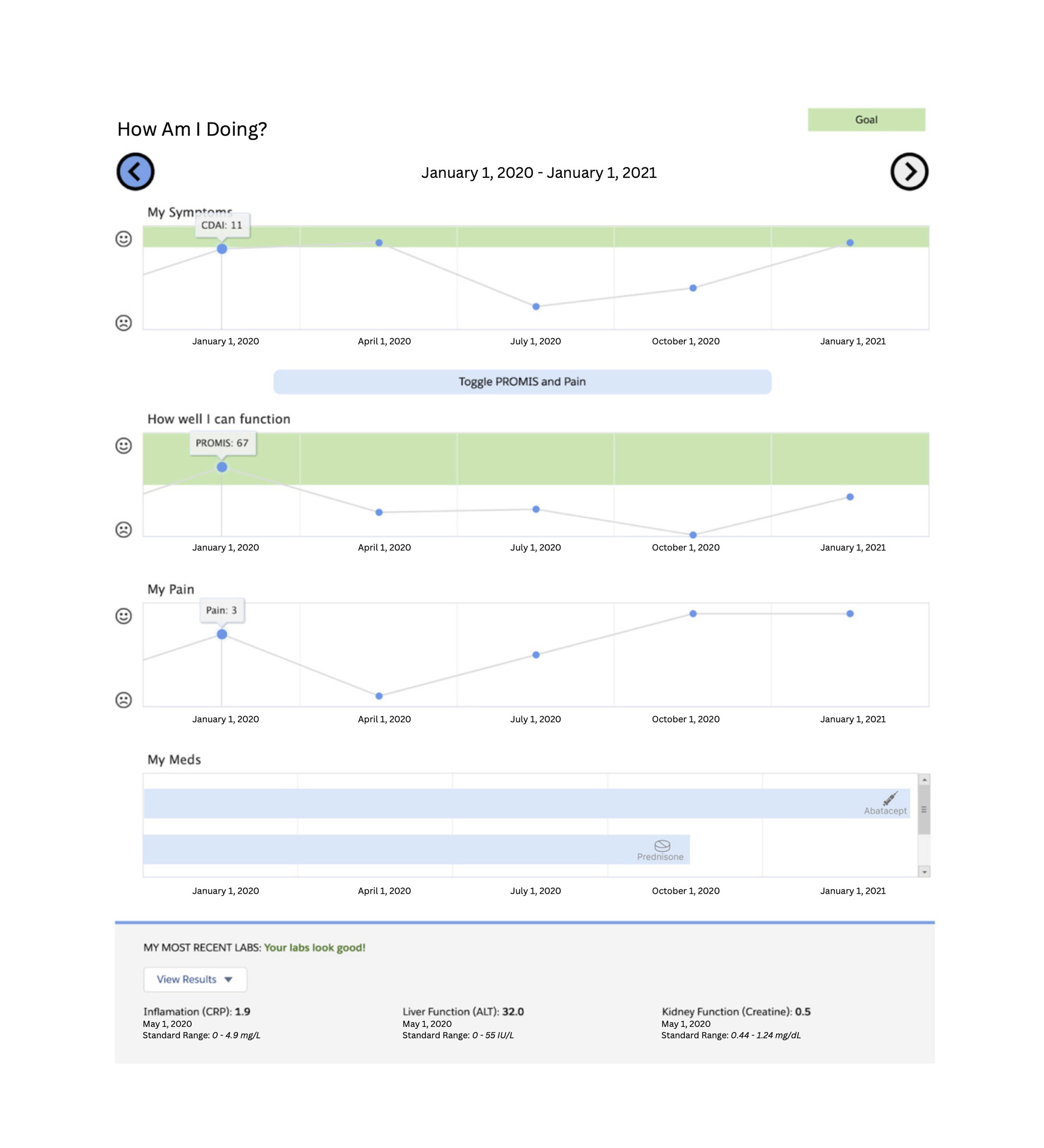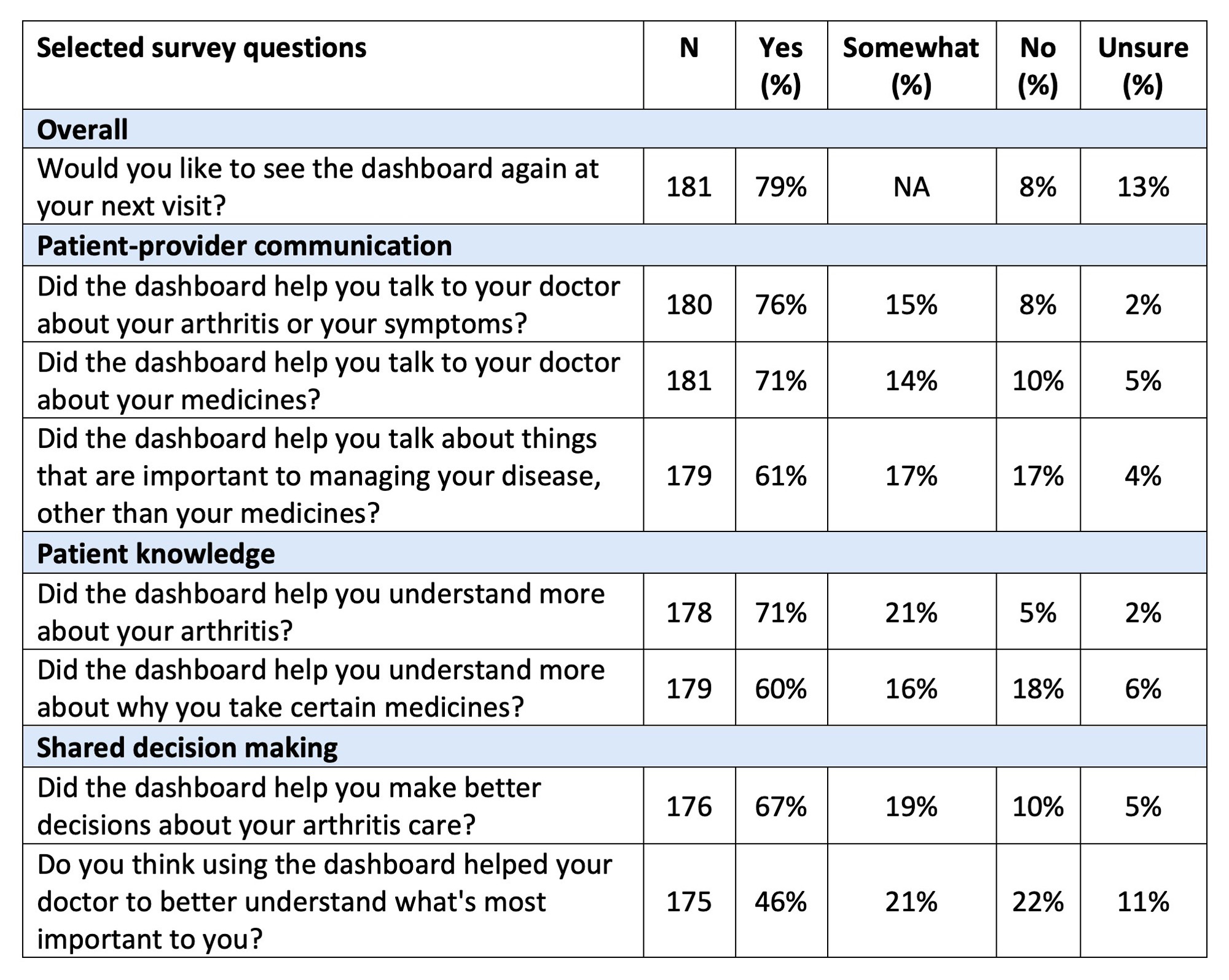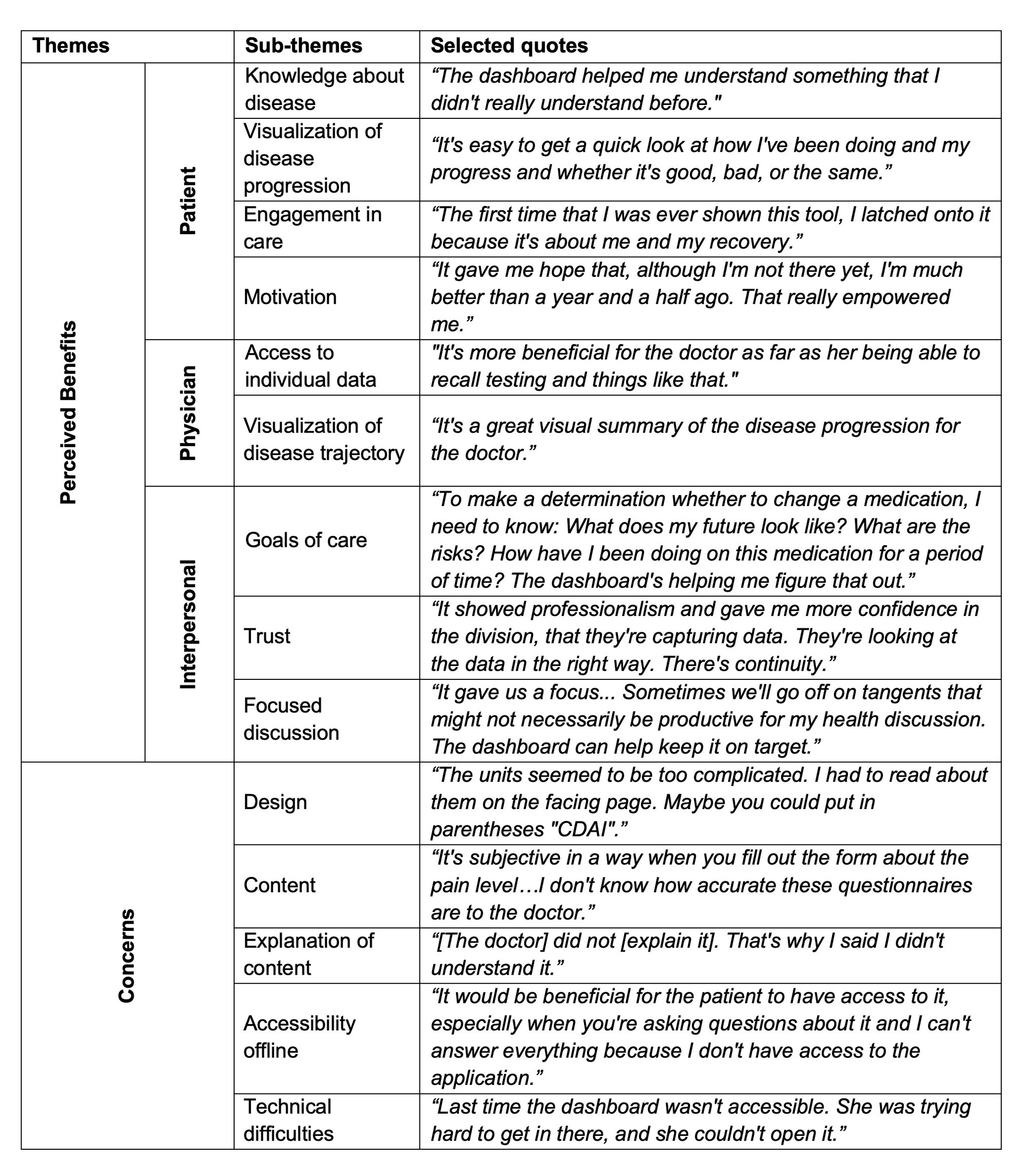Session Information
Date: Sunday, November 12, 2023
Title: (0325–0344) Patient Outcomes, Preferences, & Attitudes Poster I
Session Type: Poster Session A
Session Time: 9:00AM-11:00AM
Background/Purpose: Shared decision making, health literacy, and effective communication around patient-reported outcomes (PROs) are vital components to a treat-to-target approach in rheumatoid arthritis (RA) patients. To enhance these areas of patient care, we developed an EHR-integrated, patient-facing sidecar dashboard application that displays RA outcomes (disease activity, functional status, pain scores), medications, and lab results for use during clinical visits (Figure). The dashboard was rolled out at an academic rheumatology clinic as part of a stepped-wedge pragmatic randomized trial starting in 2021. This study aimed to assess patient perspectives on the usability of the dashboard using a mixed-methods approach.
Methods: Consecutive RA patients whose clinicians used the dashboard during a visit were invited to complete a survey regarding the usability of the dashboard. Using purposive sampling to ensure that a range of usability perspectives were included, a subset of patients was invited to participate in semi-structured interviews to assess their perceptions of the dashboard. Recorded interviews were transcribed verbatim and thematically analyzed using inductive and deductive techniques.
Results: 181 patients responded to the survey. Most patients (79%) were interested in seeing the dashboard again at a future visit and felt that the dashboard helped them talk to their physician about their RA symptoms (76%) and medications (71%; Table 1). Many also reported that the dashboard helped them understand more about their disease (71%) and make better decisions about their RA care (67%).
Similar themes emerged from the qualitative interviews (N = 27; 89% women, mean age 57 years, 74% with self-reported high health literacy; see Table 2). Perceived benefits of the dashboard included visualizing disease progression and changes over time, which engaged patients in their care and increased their motivation to control their disease. Patients valued how the dashboard allowed physicians to conveniently access their RA outcome information. On the interpersonal level, patients noted improved communication around goals of care (disease progression and treatment), and increased trust and confidence in their providers. Despite being comfortable with technology, patients also identified some challenges, including that they found it difficult to understand RA outcomes or the dashboard content without some explanation from physicians. Patients also expressed a wish to access the dashboard in-between visits.
Conclusion: In this mixed-methods study, most patients felt that a sidecar dashboard application enhanced their clinical encounters. Positive feedback from patients suggests that routine use of the dashboard has potential to improve patient engagement in RA care. Patients also suggested specific areas for improvement in accessibility, design, and content, which should be considered to further optimize the dashboard.
To cite this abstract in AMA style:
Wilson C, Nasrallah C, Hamblin A, Jacobsohn L, Young C, Young C, Nakamura M, Gross A, Ashouri J, Dietz B, Matloubian M, Yazdany J, Schmajuk G. Patient Perspectives on the Usability of a Rheumatoid Arthritis Patient-reported Outcomes Electronic Health Record-based Dashboard: A Mixed-Methods Study [abstract]. Arthritis Rheumatol. 2023; 75 (suppl 9). https://acrabstracts.org/abstract/patient-perspectives-on-the-usability-of-a-rheumatoid-arthritis-patient-reported-outcomes-electronic-health-record-based-dashboard-a-mixed-methods-study/. Accessed .« Back to ACR Convergence 2023
ACR Meeting Abstracts - https://acrabstracts.org/abstract/patient-perspectives-on-the-usability-of-a-rheumatoid-arthritis-patient-reported-outcomes-electronic-health-record-based-dashboard-a-mixed-methods-study/



